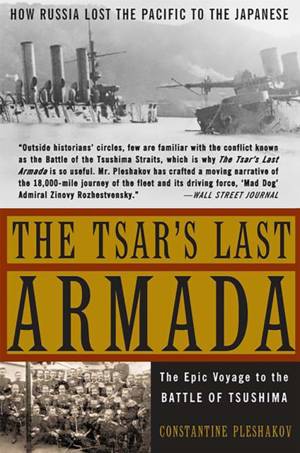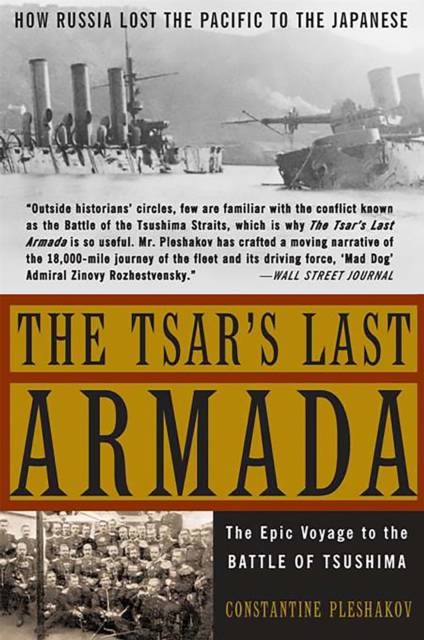
- Afhalen na 1 uur in een winkel met voorraad
- Gratis thuislevering in België vanaf € 30
- Ruim aanbod met 7 miljoen producten
- Afhalen na 1 uur in een winkel met voorraad
- Gratis thuislevering in België vanaf € 30
- Ruim aanbod met 7 miljoen producten
The Tsar's Last Armada
The Epic Journey to the Battle of Tsushima
Constantine PleshakovOmschrijving
On May 14-15, 1905, in the Tsushima Straits near Japan, an entire Russian fleet was annihilated, its ships sunk, scattered, or captured by the Japanese. In the deciding battle of the Russo-Japanese War, the Japanese lost only three destroyers but the Russians lost twenty-two ships and thousands of sailors. It was the first modern naval battle, employing all the new technology of destruction. The old imperial navy was woefully unprepared. The defeat at Tsushima was the last and greatest of many indignities suffered by the Russian fleet, which had traveled halfway around the world to reach the battle, dogged every mile by bad luck and misadventure. Their legendary admiral, dubbed "Mad Dog," led them on an extraordinary eighteen-thousand-mile journey from the Baltic Sea, around Europe, Africa, and Asia, to the Sea of Japan. They were burdened by the Tsar's incompetent leadership and the old, slow ships that he insisted be included to bulk up the fleet. Moreover, they were under constant fear of attack, and there were no friendly ports to supply coal, food, and fresh water. The level of self-sufficiency attained by this navy was not seen again until the Second World War. The battle of Tsushima is among the top five naval battles in history, equal in scope and drama to those of Lepanto, Trafalgar, Jutland, and Midway, yet despite its importance it has been long neglected in the West. With a novelist's eye and a historian's authority, Constantine Pleshakov tells of the Russian squadron's long, difficult journey and fast, horrible defeat.
Specificaties
Betrokkenen
- Auteur(s):
- Uitgeverij:
Inhoud
- Aantal bladzijden:
- 416
- Taal:
- Engels
Eigenschappen
- Productcode (EAN):
- 9780465057924
- Verschijningsdatum:
- 1/04/2003
- Uitvoering:
- Paperback
- Formaat:
- Trade paperback (VS)
- Afmetingen:
- 136 mm x 204 mm
- Gewicht:
- 458 g

Alleen bij Standaard Boekhandel
Beoordelingen
We publiceren alleen reviews die voldoen aan de voorwaarden voor reviews. Bekijk onze voorwaarden voor reviews.











